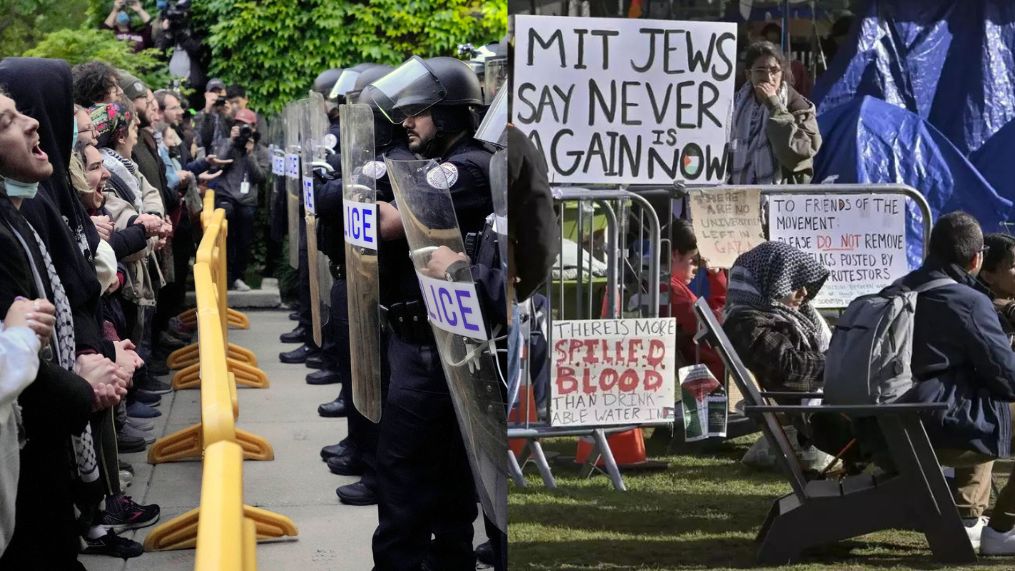Police conducted raids on pro-Palestinian protest camps at the Massachusetts Institute of Technology (MIT) and the University of Pennsylvania, arresting numerous activists and dismantling encampments.
In Philadelphia, officers in riot gear removed reporters before clearing tents and disposing of protesters’ belongings, resulting in about 33 arrests. A similar operation occurred at MIT, where riot police arrested at least 10 student protesters and flattened the encampment.
These crackdowns are part of a broader effort by school and local authorities to quell demonstrations on campuses across the United States.
University leaders have cited safety concerns and aimed to disband encampments ahead of May commencement ceremonies, which attract large crowds of visitors.
Harvard University began suspending students involved in an encampment on its Cambridge campus, stating that the protests disrupted the educational environment during final exams and commencement preparations. While disciplinary procedures are ongoing, the number of suspensions remains unspecified.

The protesting students demand a cease-fire in Israel’s incursion into Gaza and advocate for divestment from companies with ties to Israel.
Echoing these sentiments, the Union Theological Seminary and Evergreen State College endorsed students’ divestment calls, withdrawing support from companies profiting from the conflict.
MIT President Sally Kornbluth highlighted escalating clashes between pro-Palestinian and pro-Israeli protesters, emphasizing the need to restore peace on campus.
Penn Interim President J. Larry Jameson expressed concerns about safety, citing reports of harassment and threats within the encampment.
Since the initial mass arrests at Columbia University on April 18, over 2,600 demonstrators have been detained nationwide, fueling debates about the effectiveness of such policing measures.
Protests have emerged at universities in other countries, with police removing demonstrators from an encampment at the University of Calgary in Canada.




